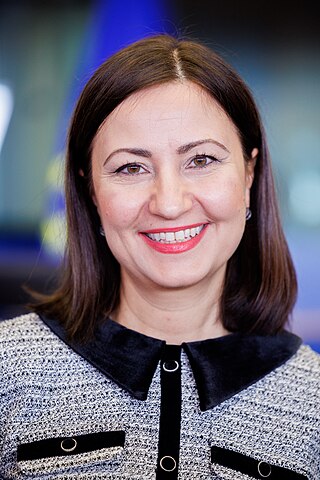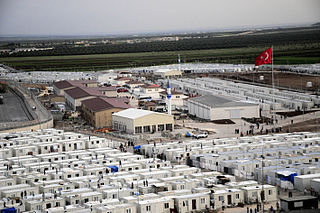
The Community acquis or acquis communautaire, sometimes called the EU acquis and often shortened to acquis, is the accumulated legislation, legal acts and court decisions that constitute the body of European Union law that came into being since 1993. The term is French: acquis meaning "that which has been acquired or obtained", and communautaire meaning "of the community".

The European Union plays a minor and mostly indirect policy role in sport, because (a) sport is normally considered to be outside the competences conferred by the member states to the European Union and (b) sport is in general organised internally, on a European continental level, or globally.
The Erasmus Programme is a European Union (EU) student exchange programme established in 1987. Erasmus+, or Erasmus Plus, is the new programme combining all the EU's current schemes for education, training, youth and sport, which was started in January 2014.

The European Trade Union Confederation (ETUC) is the major trade union organisation representing workers at the European level. In its role as a European social partner, the ETUC works both in a consulting role with the European Commission and negotiates agreements and work programmes with European employers. It coordinates the national and sectoral policies of its affiliates on social and economic matters, particularly in the framework of the EU institutional processes, including European economic governance and the EU Semester.

European Union culture policies aim to address and promote the cultural dimension of European integration through relevant legislation and government funding. These policies support the development of cultural activity, education or research conducted by private companies, NGO's and individual initiatives based in the EU working in the fields of cinema and audiovisual, publishing, music and crafts.
In the European Union education is at the responsibility of its Member States and their Ministries of education that they have; in such, the European Union institutions play only a supporting and overseeing role. According to Art. 165 of the Treaty on the Functioning of the European Union, the Community
shall contribute to the development of quality education by encouraging cooperation between Member States, through actions such as promoting the mobility of citizens, designing joint study programmes, establishing networks, exchanging information or teaching languages of the European Union. The Treaty also contains a commitment to promote life-long learning for all citizens of the Union.
Interreg is a series of programmes to stimulate cooperation between regions in and out of the European Union (EU), funded by the European Regional Development Fund. The first Interreg started in 1989. Interreg IV covered the period 2007–2013. Interreg V (2014–2020) covers all 27 EU member states, the EFTA countries, six accession countries and 18 neighbouring countries. It has a budget of EUR 10.1 billion, which represents 2.8% of the total of the European Cohesion Policy budget. Since the non EU countries don't pay EU membership fee, they contribute directly to Interreg, not through ERDF.

Leonard Orban is a Romanian independent technocrat who served as the Commissioner for Multilingualism in the European Commission, the executive body of the European Union (EU). He was responsible for the EU language policy and was the first Romanian Commissioner and the first member of the Commission whose portfolio is exclusively multilingualism. His term of office began on 1 January 2007 and ended on 9 February 2010. With a background in engineering and economics, Orban has taken up various posts working for the accession of Romania to the European Union, most prominently as Deputy and later as Chief Negotiator for his country at the time of final negotiations with the European Union.

Christel Schaldemose is a Danish politician who has been serving as a Member of the European Parliament since 2006. She is a member of the Social Democrats, part of the Party of European Socialists.

The European Commissioner for Innovation, Research, Culture, Education and Youth is a member of the European Commission. The portfolio was previously titled European Commissioner for Education, Culture, Youth and Sport until 2019 when it was merged with the European Commissioner for Research, Science and Innovation to form its current title.
The Eurydice Network is a European Commission-funded education information network in Europe. It consists of a coordinating European Unit and a series of national units; its aim is to provide policy makers in the member states of the European Union and in the wider European region, with up-to-date and reliable information on which to base policy decisions in the education field.
Child migration or "children in migration or mobility" is the movement of people ages 3–18 within or across political borders, with or without their parents or a legal guardian, to another country or region. They may travel with or without legal travel documents. They may arrive to the destination country as refugees, asylum seekers, or economic migrants.

European Union–Pakistan relations are the international relations between the common foreign policy and trade relations of the European Union and the Islamic Republic of Pakistan.

Ramona Nicole Mănescu is a Romanian politician and lawyer. From 24 July 2019 to 4 November 2019, she served as minister of Foreign Affairs in the Romanian Government. She was a Member of the European Parliament serving 2007 to 2013 and 2014 to 2019 from the National Liberal Party, active within the European People's Party. As part of this group she is a member of the European Parliament Committee on Foreign Affairs, vice-chair in the Delegation for relations with the Mashreq countries and a substitute member in the Committee on transport and tourism and in Delegation for relations with the Arab Peninsula.

Media freedom in the European Union is a fundamental right that applies to all member states of the European Union and its citizens, as defined in the EU Charter of Fundamental Rights as well as the European Convention on Human Rights. Within the EU enlargement process, guaranteeing media freedom is named a "key indicator of a country's readiness to become part of the EU".

Refugees of the Syrian Civil War in Turkey are the Syrian refugees fleeing the Syrian Civil War. The Republic of Turkey hosts over 3.7 million registered refugees.
The migration and asylum policy of the European Union is within the area of freedom, security and justice, established to develop and harmonise principles and measures used by member countries of the European Union to regulate migration processes and to manage issues concerning asylum and refugee status in the European Union.
The Danube Strategy of the European Union aimed at closer cooperation between the states along the Danube. The focus is on the areas of infrastructure, environmental protection, wealth creation and good governance.








